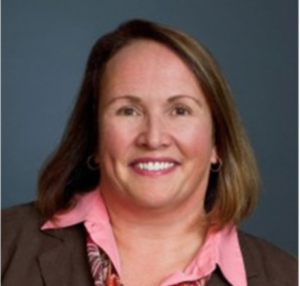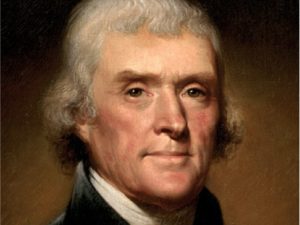Calendar of Events
Note: Meetings are usually held on the second Sunday of each month, September through May, from 2:00 to 4:00 p.m. Currently we are meeting via Zoom, but in-person meetings are held at the Bethesda-Chevy Chase Services Center, 4805 Edgemoor Lane, Bethesda, Maryland, and occasionally at other venues. The meetings are open to anyone. However, certain meetings may require a fee.

- This event has passed.
Thomas Jefferson: The Foodie Founding Father
November 10, 2019 @ 2:00 pm - 4:00 pm
Most Americans can identify the author of this quote:
“We hold these truths to be self-evident, that all Men are created equal, that they are endowed by their Creator with certain unalienable rights ….”
But fewer are aware that the same author also wrote, “When you make white soups, never put in the cream until you take it off the fire” and “Plant a thimble spool of lettuce seed every Monday from Feb 1 to Sept 1.”
In fact, Thomas Jefferson considered popularizing olive oil and promoting upland rice to be at least as important to the future of the republic as writing the Declaration of Independence.
Learn all about Thomas Jefferson from Susan Sullivan Lagon. Before retiring from full-time teaching in 2015, Professor Lagon spent most of her professional life teaching at Georgetown University, where she served on the faculties of both the Government Department and the Government Affairs Institute (GAI). She taught American Government and Constitutional Law to undergraduates on campus and courses about Congress for federal agency personnel on Capitol Hill. She has spoken for more than 500 international visitors’ programs sponsored by the U.S. Department of State and continues to lecture frequently for GAI and the Canadian School of Public Service. Susan earned her B.A. and M.A. in Government and Foreign Affairs at the University of Virginia and her Ph.D. in Government from Georgetown University. Before joining the faculty at Georgetown, she was a book editor with Congressional Quarterly Press and taught Government and AP Politics at the National Cathedral School/St. Albans.

For the past few years, she has served as the Hotel Historian at the Jefferson Hotel four blocks north of the
White House—no doubt the best job in the hospitality industry! She designs custom tour itineraries, offers
tours of the hotel, and interprets Jefferson’s political, culinary, and architectural contributions to American
life. She also enjoys choral singing, travel (she has visited all 50 U.S. states), cooking, and working part-time
at Penzeys Spices.
Because Jefferson was an obsessive record keeper, culinary historians have a treasure trove of data to explore: Handwritten recipes, drawings of the pasta extruder used to make the “macaroni pie” served at White House dinners, a classification scheme for wines, a garden log he kept for decades, detailed charts showing when fruits and vegetables were available at D.C.’s Central Market, and more. Jefferson appreciated the value of dining for political as well as social purposes. By the time he left the White House, almost every Member of Congress had been invited to dine at the White House. While in Paris, Jefferson had his enslaved chef
James Hemings—the first American chef trained in France—serve imported Virginia ham, yams, and sweet corn at diplomatic dinners. The decision to locate the nation’s capital on the banks of the Potomac was the result of a deal struck at a dinner Jefferson hosted at his home in New York.

This talk will highlight some of the key components of Jefferson’s culinary legacy.